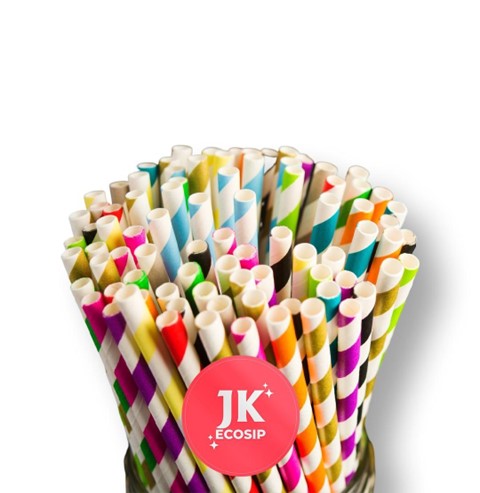In recent years, the world has become increasingly aware of the detrimental effects of single-use plastics on the environment. Among the many industries contributing to plastic waste, restaurants have been significant culprits. However, there’s a positive shift underway as more restaurants are adopting sustainable practices to reduce their plastic footprint. This article explores how restaurants are transitioning from plastic to paper and other eco-friendly alternatives to tackle single-use plastic waste.
Plastic pollution is a pressing global issue, with millions of tons of plastic waste entering our oceans and landfills each year. Single-use plastics, such as straws, utensils, and packaging, contribute significantly to this pollution. Restaurants, with their reliance on these items, have been at the forefront of this problem. However, many are now recognising the need for change and are implementing strategies to minimise their environmental impact.
Straws
One of the most noticeable changes in restaurants is the shift from plastic straws to straw paper or reusable alternatives. Plastic straws are one of the leading contributors to ocean pollution, posing a severe threat to marine life. In response, many restaurants have replaced plastic straws with paper straws, which are biodegradable and compostable. Also, some establishments have opted for reusable straws made from materials like stainless steel or bamboo, offering customers a more sustainable option.
Utensils and Take Out
Utensils and take out containers are other areas where restaurants are reducing their reliance on plastic. Instead of plastic cutlery, many restaurants are now providing customers with utensils made from bamboo or other renewable materials. These types of disposable packaging not only contribute to a more eco-friendly approach but also provide a distinctive touch to the dining experience. Similarly, take out containers made from paper or compostable materials have become increasingly popular, allowing customers to enjoy their meals on the go without contributing to plastic waste.
Other Initiatives
In addition to switching to paper and other sustainable materials, some restaurants are implementing innovative initiatives to reduce single-use plastic waste further. For instance, some establishments have introduced “bring your own container” programs, encouraging customers to bring their own reusable containers for takeout orders. Not only does this reduce plastic waste, but it also promotes a sense of community and environmental responsibility among patrons.
Packaging
Furthermore, many restaurants are reevaluating their packaging practices and switching to disposable packaging alternatives to minimise waste. Instead of individually wrapped items, such as condiment packets and single-serving sauces, some establishments are opting for bulk dispensers or reusable containers. By reducing plastic and unnecessary packaging, restaurants can significantly decrease their environmental footprint and save on costs in the long run.
Training
Education and awareness play a crucial role in driving these changes within the restaurant industry. Many restaurants are proactively educating their staff and customers about the importance of reducing single-use plastics and adopting sustainable practices. This may include signage explaining their eco-friendly initiatives, training staff on proper waste management, and providing customers with information on how they can contribute to the cause.
Government Regulations
Government regulations and consumer demand are also influencing restaurants to prioritise sustainability. In recent years, many cities and countries have implemented bans or restrictions on single-use plastics, prompting restaurants to find alternatives. Consumers are increasingly seeking out eco-friendly dining options and are willing to support restaurants that prioritise sustainability.
While the transition from plastic to paper and other sustainable materials may require initial investments and adjustments, many restaurants are finding that it pays off in the long run. Not only does it align with their values and attract environmentally conscious customers, but it also reduces operating costs and helps preserve the planet for future generations.
The shift from plastic to paper in restaurants is a positive step towards reducing single-use plastic waste. By replacing plastic straws, utensils, takeout containers, and packaging with eco-friendly alternatives like paper straws from sustainable manufacturers like JK Paper, restaurants can significantly decrease their environmental footprint. Through education, innovation, and consumer demand, the restaurant industry is moving towards a more sustainable future.
